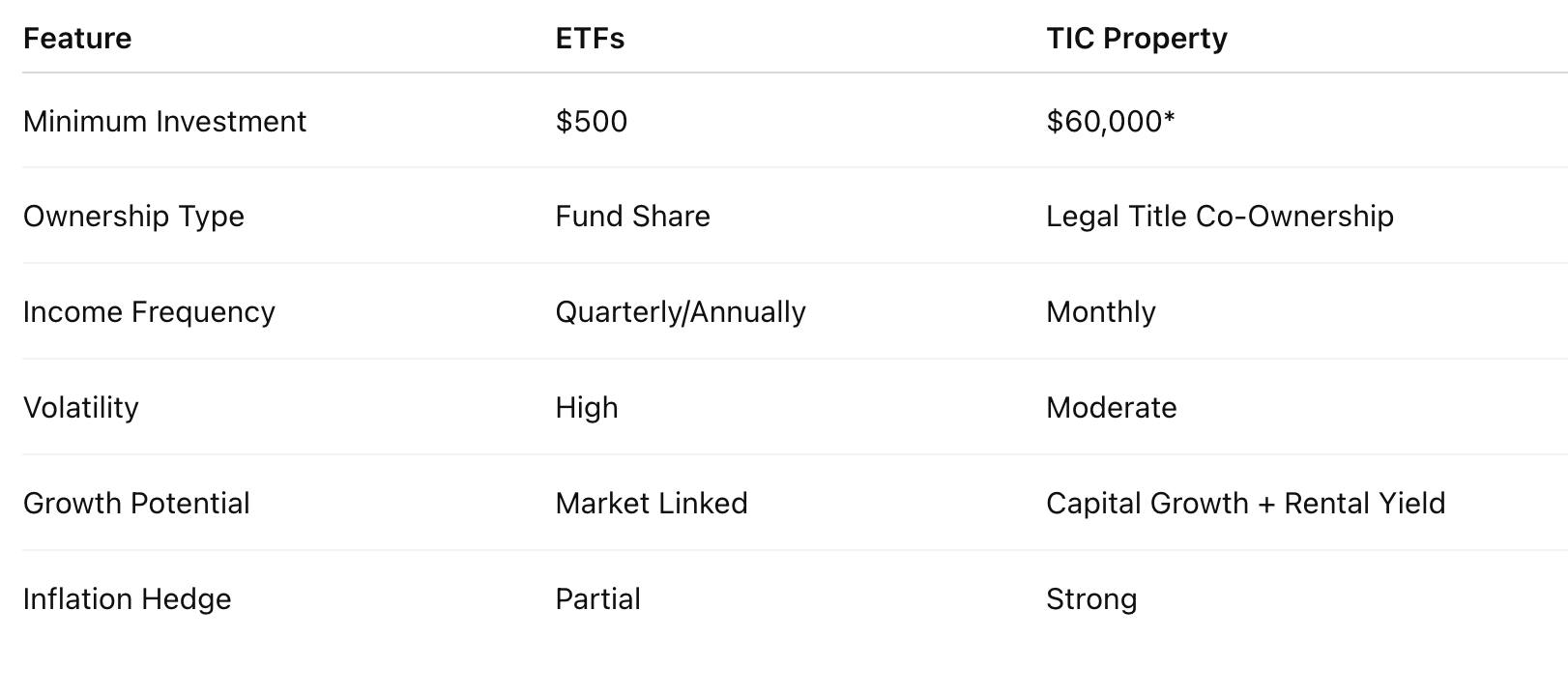


Property vs ETFs: Which Investment Wins in 2025?
.png)
Property vs ETFs: Which Investment Wins in 2025?
The investment landscape in Australia is shifting. With economic uncertainty, inflation pressure, and a hunger for alternative income sources, Aussie investors are reassessing their strategies. Two front-runners? Property and ETFs. But which one truly wins in 2025?
How ETFs Stack Up in 2025
Exchange-Traded Funds (ETFs) have grown in popularity thanks to their low cost, easy diversification, and high liquidity.
Popular funds like the ASX200 (STW) have delivered average annual returns between 9.58% to 12.07% over the past decade
(Source: BlackRock iShares STW).
Meanwhile, NASDAQ-100 focused ETFs such as NDQ have achieved returns of 23.74% p.a. over the past 3 years
(Source: Vanguard NASDAQ-100 ETF).
But here's the catch: ETFs are highly volatile. Market downturns, tech slumps, and global unrest can erode value fast. Plus, you’re not earning monthly income or holding anything tangible — it’s paper ownership, not property ownership.
Why Property Still Holds Power
Despite higher barriers to entry, real estate remains a time-tested path to wealth.
According to CoreLogic, Australian residential property prices have increased around 34% in the past 10 years.
Rental yields across metro areas average 3%–5%, and in some high-yield suburbs, returns exceed 6%–10%
(Source: SQM Research).
Property offers:
- Steady monthly cash flow
- Resilience against inflation
- Long-term capital growth
- Tax advantages like depreciation
What Is TIC Property?
TIC Property (Tenants in Common) is a fractional investment model that lets everyday Aussies co-own real estate from as little as $60,000.
Unlike ETFs, you’re on the legal property title — not just a fund registry.
It’s like combining the accessibility of ETFs with the security of real property.
Why It Might Be Right for You:
✅ Up to 9% rental yields
✅ Your name listed on the legal title
✅ Passive monthly rental income
✅ Diversify across properties and suburbs
✅ No maintenance or tenant headaches
Side-by-Side: Property vs ETFs

Who Should Consider TIC Property?
If you’re looking for a secure, income-generating asset that doesn’t ride the emotional rollercoaster of the stock market, TIC Property is worth exploring.
It’s ideal for:
- First-time property investors
- SMSF trustees seeking property diversification
- Professionals chasing passive income
- Australians priced out of the traditional housing market
Final Verdict: Diversify Like a Pro
Smart investing in 2025 isn’t just about picking one winner. It’s about layering your portfolio with complementary assets.
ETFs give you global exposure, but real estate — especially through models like TIC — gives you stability, monthly income, and ownership.
So, why not enjoy the best of both worlds?
👉 Book your free session now to learn more about how TIC Property can reshape your investment future in 2025.
Disclaimer:
This article is intended for educational purposes only and does not constitute financial advice. Please consult a licensed financial advisor before making any investment decisions.








